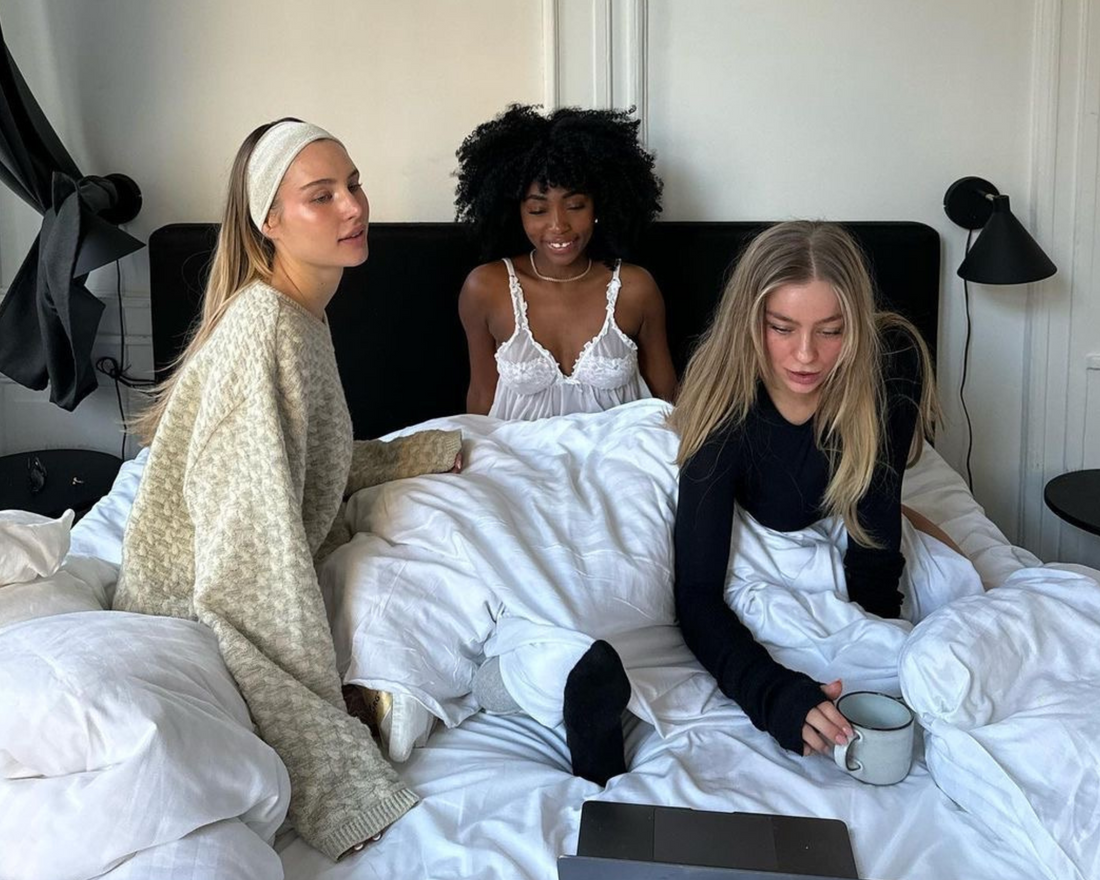Landing collaborations feels like cracking a code sometimes, doesn't it? One question keeps popping up: who do you email first, the brand’s PR agency or the brand itself? Both options have their pros and cons, and knowing the ins and outs will save you time, energy, and maybe a few awkward “did they see my email?” moments.
Why Email PR Agencies?
The Upsides
PR agencies are often the go-to for big brands. Think of them as the professional gatekeepers who manage the flow of collaboration requests.
- Big Brand Access: Agencies typically handle partnerships for major labels. If you’re aiming for glossy campaigns and top-tier brands, they’re usually your best route.
- Clear Guidelines: Agencies send detailed briefs with everything you need to know, deadlines, deliverables, style direction etc, so you’re not left guessing what the brand wants.
- Support with the Process: They handle contracts, payments, timelines, and sometimes even help with negotiations. This structure is great if you want a smoother, more formal setup.
- Dedicated Contacts: Usually, there’s a specific person or team looking after creators, so your communication won’t get lost in a general inbox.
The Downsides
- Lots of Competition: Agencies get slammed with emails daily. Your pitch has to be sharp, personalised and relevant, generic emails won’t cut it.
- Less Room to Experiment: Campaigns through agencies tend to be tightly controlled. There’s often less flexibility to bring your own style or ideas.
- Slower Feedback: Because your pitch passes through agency and brand approvals, responses and decisions can take longer.
- Distance from the Brand: You don’t get to build a direct relationship with the brand, which sometimes means less influence over the project.
Why Email Brands Directly?
The Benefits
- Straight to the Decision-Maker: Especially with smaller or indie brands, emailing directly often means talking to someone who can say yes straight away.
- More Creative Freedom: Without agency restrictions, brands can be more open to your unique ideas and style.
- Faster Responses: Less bureaucracy often means quicker replies and decisions.
- Build Long-Term Relationships: Direct contact makes it easier to develop ongoing collaborations, rather than one-off projects.
- Control Your Negotiations: You handle rates, deliverables and timelines yourself, which means you’re in the driver’s seat.
The Challenges
- Finding the Right Contact: Brands don’t always make partnership contacts easy to find (but that's what we're here for 💅)
- Risk of Getting Overlooked: Without a PR or partnerships team, your email might disappear into a general inbox or get missed.
- You Manage Everything: Without agency buffers, you’ll be responsible for negotiations, contracts, and keeping track of deliverables and payments.
- Vague Campaign Details: Brands might not always provide detailed briefs upfront, so you’ll need to ask questions and clarify expectations.
Which Approach Fits You Best?
- Go to PR agencies if: You want access to big brands, prefer a structured process, and are comfortable with a slower, competitive environment.
- Go direct if: You want creative freedom, quicker decisions, and to build personal relationships, especially with smaller or emerging brands.
How to Do Both
Most successful creators and freelancers don’t choose one or the other, they juggle both. Pitch agencies for big campaigns and reach out directly to brands that match your vibe.
Keep your contacts organised with notes on responses and follow-ups. Tailor each email to show you get the brand or agency, and why you’re a great fit.
- Do your research: Know what the brand or agency is about, recent campaigns they’ve done, and what kind of creators they like to work with.
- Make your intro clear: Who you are, what you do, and why you’re reaching out, all within the first couple of sentences.
- Highlight your value: Don’t just say you want to collaborate, explain what you bring to the table and how it fits their needs.
- Include links: Portfolio, Instagram, previous work etc, make it easy for them to check you out.
- Keep it professional but natural: Write like a real person, friendly but confident, no jargon or overly formal language.
- Follow up politely: If you haven’t heard back after 10-14 days, send a gentle reminder.
Who you email is part of the strategy, but how you show up in that inbox, is what really counts. Keep it personal, keep it clear, and always lead with what makes you the right fit. A thoughtful, well-structured pitch can open doors, whether you're emailing a PR agency or a brand founder directly.






